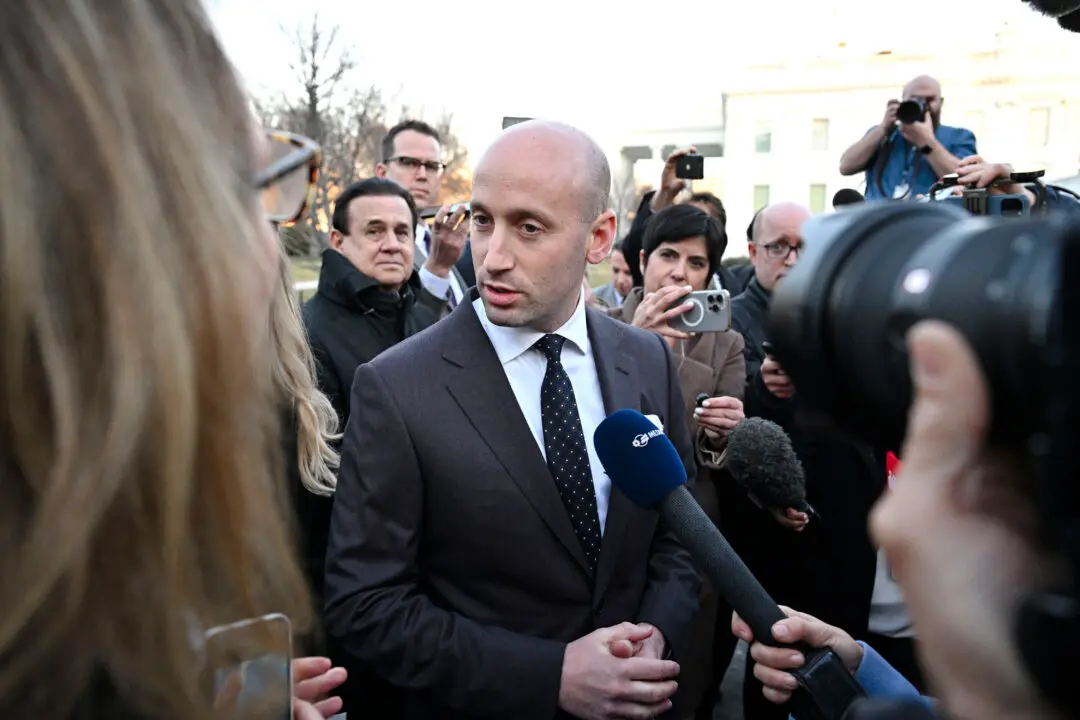The checks that the Trump administration suggested giving to American taxpayers in light of savings made from the Department of Government Efficiency’s (DOGE’s) scrutiny of federal spending will be legislated through a reconciliation bill, White House Deputy Chief of Staff Stephen Miller said on Feb. 20.
Earlier this week, businessman James Fishback first proposed sending 20 percent of the savings on federal spending generated by DOGE cuts directly to U.S. taxpayers. President Donald Trump said that he loved the idea, prompting a reporter to ask Miller during a Thursday White House press briefing when Americans might see those checks.





